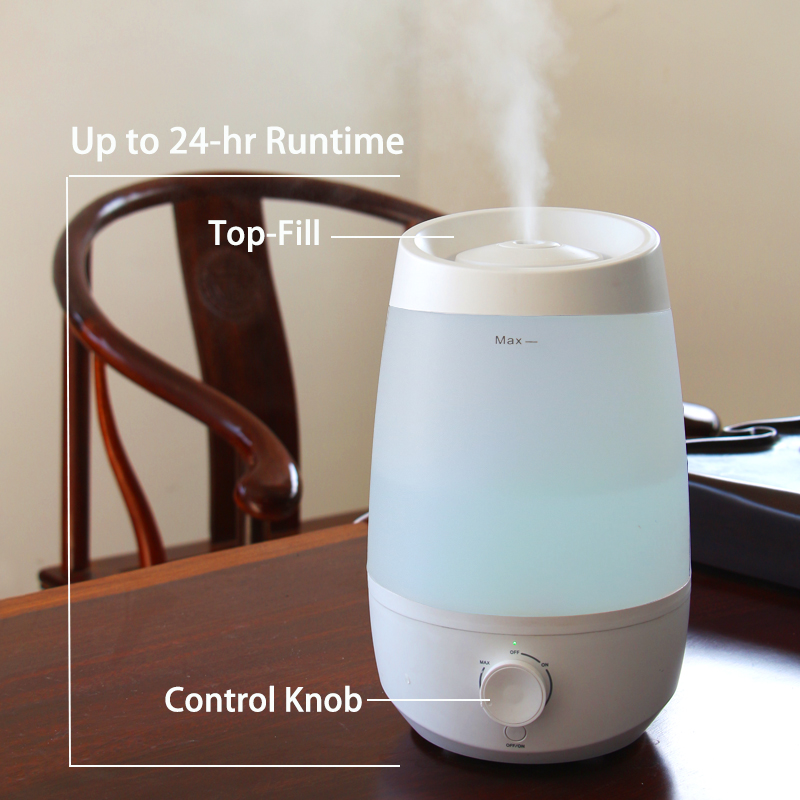I believe everyone is familiar with humidifiers, especially in dry air-conditioned rooms. Humidifiers can increase the humidity in the air and relieve discomfort. Although the function and structure of humidifiers are simple, you also need to have a certain understanding of humidifiers before purchasing. Only by buying the right heater can the problem of dry air be solved. If you buy the wrong humidifier, it will also bring hidden dangers to your health. Here are some precautions for using humidifiers.

1. Regular cleaning
The water tank of the humidifier needs to be cleaned every 3-5 days, and the longest time cannot exceed one week, otherwise, bacteria will be produced in the water tank, and these bacteria will drift into the air with the water mist and be inhaled into the lungs by people, causing respiratory diseases.
2. Can bactericides be added to water?
Some people like to add lemon juice, bactericides, essential oils, etc. to the water to make the water mist smell better. These things will be inhaled into the lungs with the water mist, affecting lung health.
3. Use tap water or purified water.
Some people may find that there will be white powder residue after using the humidifier. This is caused by the different water used. If the humidifier is filled with tap water, the sprayed water mist contains calcium and magnesium particles, which will produce powder after drying, which will harm human health.
4. Does the ultraviolet lamp have a sterilization effect?
Some humidifiers have the function of ultraviolet lamps, which have a sterilization effect. Although ultraviolet lamps do have a sterilization effect, the ultraviolet lamps must be illuminated in the water tank because the water tank is the source of bacteria. The ultraviolet lamp has no sterilization effect when it is illuminated in other places.
5. Why do you feel stuffy when using a humidifier?
Sometimes you will feel stuffy in your chest and shortness of breath after using the humidifier for a long time. It is because the water mist sprayed by the humidifier causes the indoor humidity to be too high, causing chest tightness and shortness of breath.
6. Who is not suitable for using a humidifier?
Arthritis, diabetes, and patients with respiratory diseases are not suitable for using humidifiers.
7. How much indoor humidity is suitable?
The most appropriate room humidity is around 40%-60%. Too high or too low humidity can easily breed bacteria and cause respiratory diseases. If the humidity is too low, static electricity and throat discomfort can easily occur. Too much humidity can cause chest tightness and shortness of breath.
Post time: Nov-13-2024

